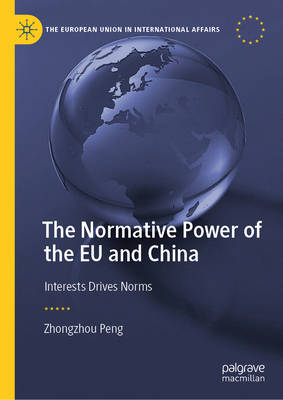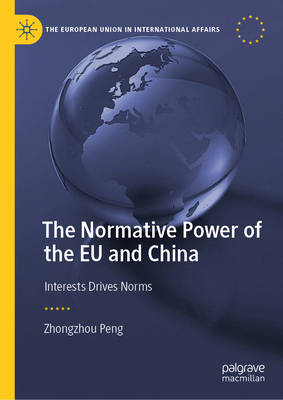
- Afhalen na 1 uur in een winkel met voorraad
- Gratis thuislevering in België vanaf € 30
- Ruim aanbod met 7 miljoen producten
- Afhalen na 1 uur in een winkel met voorraad
- Gratis thuislevering in België vanaf € 30
- Ruim aanbod met 7 miljoen producten
Zoeken
Omschrijving
"The Normative Power of the EU and China: Interests Drive Norms is a vital contribution to the scholarship on global governance. It deftly dissects how both the EU and China pursue norm diffusion not as idealistic projects but as interest-driven strategies. The book provides a much-needed corrective to overly simplistic conceptions of 'normative power'." --Richard G. Whitman, Professor, School of Economics, Politics and International Relations, University of Kent, UK "Zhongzhou Peng has written a very welcome recent addition to the normative power approach literature. His balanced book seeks to understand how the normative power of China compares with the EU in global governance. The analysis compares and contrasts the EU and China to provide an interesting new take on how direct diffusion is driven by different interests rather than normative concerns." --Ian Manners, Professor, Department of Political Science, Lund University, Sweden This book systematically examines how the EU and China exercise their normative power in global governance, and how they interact with each other in the Asian Infrastructure Investment Bank, the Paris Agreement, and the United Nations Human Rights Council. It demonstrates that the interests of the EU and China constitute a predominant factor that shapes their norm interpretation, norm diffusion, and outcomes of norm diffusion. The book makes the case that international norms represent a deal that fulfils the interests of actors that exercise normative power in international institutions. These findings make important theoretical and empirical contributions to the literature on normative power, EU-China relationship, and global governance.
Specificaties
Betrokkenen
- Auteur(s):
- Uitgeverij:
Inhoud
- Aantal bladzijden:
- 202
- Taal:
- Engels
- Reeks:
Eigenschappen
- Productcode (EAN):
- 9783032006059
- Verschijningsdatum:
- 2/10/2025
- Uitvoering:
- Hardcover
- Formaat:
- Genaaid
- Afmetingen:
- 150 mm x 198 mm
- Gewicht:
- 385 g

Alleen bij Standaard Boekhandel
+ 277 punten op je klantenkaart van Standaard Boekhandel
Beoordelingen
We publiceren alleen reviews die voldoen aan de voorwaarden voor reviews. Bekijk onze voorwaarden voor reviews.







